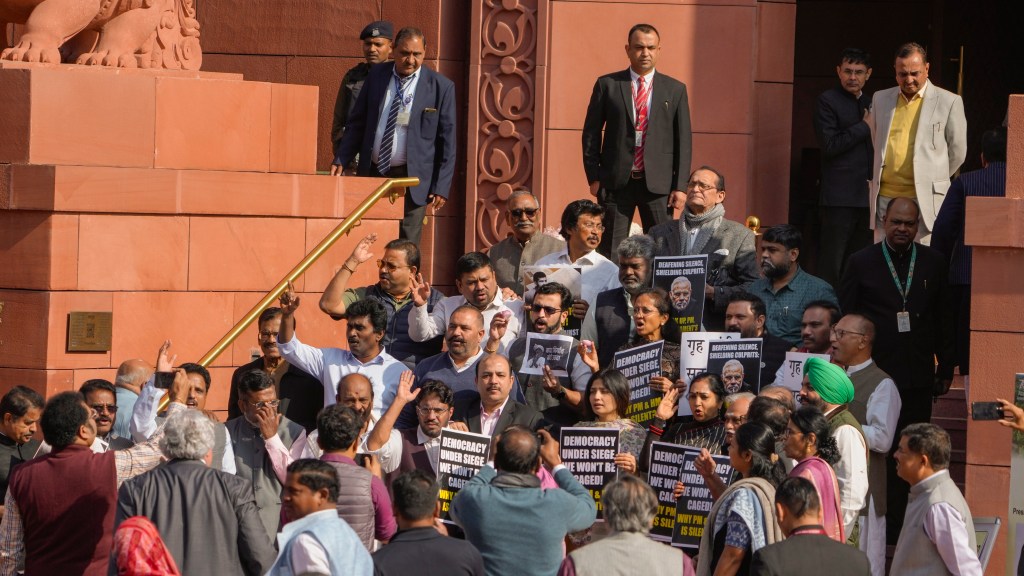The tsunami of suspensions of Opposition Members of Parliament threatens to drown whatever is left of parliamentary democracy in India. The number of MPs suspended in the winter session of Parliament has already touched 141, the immediate provocation being the Opposition’s refusal to budge on the demand for a statement from Home Minister Amit Shah over the breach in Parliament security on December 13, when two protesters jumped into the Lower House chamber and discharged smoke cans. The charges range from gross violation of rules and misconduct to disturbing the House and disobeying the Chair. The mass suspensions are unprecedented and confirm the common impression that Parliament has long ceased to be a forum for reasoned debate, and has become a platform for mutual name-calling, ruckus, and disruptive behaviour. To be sure, both sides are to blame for this.
To an impartial observer, the Opposition MPs seem to be participating in a theatre of the absurd where suspension is treated like a badge of honour. Consider this: Some of them carried placards with their demands written on them even though it was agreed at the meeting of the Business Advisory Committee that placards will not be allowed inside the House. The Opposition parties have anyway specialised in walkouts and forced suspensions rather than taking on the government on more substantive issues on the floor of the House. That’s probably because they have no affirmative agenda, preferring to rest on a referendum on the Prime Minister.
The ruling party is behaving no better. In a parliamentary democracy, the government should be erring on the side of generosity in Parliament to give space to the Opposition. But the Bharatiya Janata Party (BJP) has shown no signs of that—while the Opposition MPs have been facing harsh treatment, no action has been taken against MPs of the ruling party who got away even after using the most communally abusive and offensive remarks to fellow MPs in the House. Such differential treatment only widens the trust deficit. The government’s stymieing of any debate over the security breach issue has been in line with its conduct in the House. Sadly, the voice that really matters in the ruling party has shown no signs of any accommodation. Instead, Prime Minister Narendra Modi reportedly told his party colleagues on Tuesday that they should ignore the theatrics of the Opposition who would not return to the Lok Sabha “even in the current strength”. While outfoxing the Opposition at every opportunity is fine in the electoral arena, the same strategy should not be employed within the House.
The result of the bitter divide between the ruling party and Opposition has been predictable. According to the PRS Legislative Research data, the number of sitting days in the Lok Sabha has reduced drastically. The decline is also evident from the astonishing speed in passing legislation. The Lok Sabha, on average, took less than 10 minutes to pass a law, and the Rajya Sabha less than half an hour. Bills have been passed in the midst of din and noise with no consideration for opposition concerns or protests. Even worse, some important bills have been passed by voice vote, and sometimes without a single MP speaking, other than the minister in charge of the bill. The hallmark of a functioning democracy is elected legislators debating and discussing issues of public import. If that sounds like a sentence from a forgotten book on India’s political history, all MPs must take the blame.
